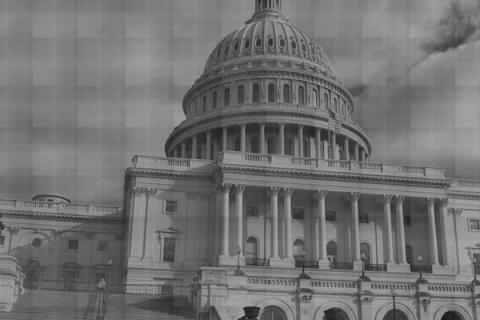The ever controversial nonpartisan, “Top Two” open primary initiative slated to appear on the June ballot has, at a bare minimum, been making its way through most procedural obstacles with relative smoothness. Having been subjected to a rather backhanded Court challenge by opponents, those in support of the ballot measure have nonetheless won a seat at the table.
Still, even as the bill has avoided being stalemated by this sort of chicanery, in recent days, its actual political prospects have been complicated by a number of high profile denunciations and revelations.
First, and perhaps most controversially for the bill’s supporters, Ralph Nader, he of the perennial third-party spoiler runs, has come out against the bill. The reasons for Nader’s opposition are not fully known, as the only person reporting on his denunciation of Proposition 14 is the pro-Prop 14 attorney Harry Kresky, who simply mentioned Nader’s opposition in passing in an op-ed for the Sacramento Bee.
Kresky, unsurprisingly, characterizes Nader’s opposition in uncharitable terms, writing “Nader believes California voters should reject this reform in order to guarantee third parties a spot on the general election ballot at the expense of millions of independent voters who will be empowered if Proposition 14 passes.” He then quotes Nader saying, with characteristic bluntness, that “unless defeated, Proposition 14 would establish a two-party tyranny that prevents other candidate choices for California voters from the November election ballot. In short, Proposition 14 wants to shut you up if you disagree with the arrogant, big two-party politicians.”
To be sure, Nader’s opposition could potentially be brushed off as meaning very little where most issues are concerned, but at the point where this is an issue related specifically to third parties, of which perhaps no candidate has been a more public face besides Ross Perot, Nader’s opposition could potentially prove awkward for Proposition 14 supporters. Naturally, it is not fatal – for instance, Nader’s announcement has been made with enough distance between now and the election that Proposition 14’s supporters could reasonably expect it to fade from public knowledge. This calculus might be slightly complicated if Nader’s opposition proves to be more than mere rhetoric, given that the former Presidential candidate still commands enough political capital to make headlines and register his opinion in a visible fashion.
More unfortunately still for proponents of Proposition 14, this declaration of opposition by Nader comes at a time when scrutiny of the pro-Proposition 14 effort may have turned up evidence that his core charge – that it is really only a Trojan Horse for increased two-party dominance – has some teeth.
According to blogger and investigative journalist John Windermuth:
A flood of cash has been pouring into the Prop. 14 campaign ever since a financial report released last Monday showed that the effort was beyond broke, with about $90,000 more in bills than it had cash in the kitty. No sooner had the Los Angeles Times mentioned that the campaign was on the shorts than Reed Hastings, the Netflix CEO, dropped $257,000 into the effort. The very next day, the governor’s political piggy bank, better known as Arnold Schwarzenegger’s California Dream Team, pumped another $500,000 into the campaign.
Windermuth goes on to explain that “While good government types backing the open primary effort might be a little nervous if they saw names like Chevron, PG&E, Sempra Energy and Wal-Mart on the list of donors, not to worry. While all those companies have given big bucks to Schwarzenegger’s PAC, it’s the governor’s name, not theirs that will appear alongside the contribution to Prop. 14.”
In other words, the fundraising for the purportedly corruption-ending measure has been conducted in a curiously obfuscatory fashion, and has drawn donations from entities which could make the Proposition’s more idealistic supporters nervous.
But ironically, whichever way the bill goes, third party efforts may have been vindicated. As Windermuth reports, “if they could raise the millions needed to finance a major effort against Prop. 14, well, they probably wouldn’t still be minor parties.”
